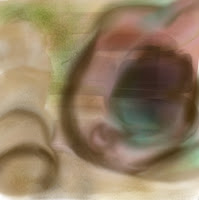Tuesday, July 31, 2007
Monday, July 30, 2007
Sunday, July 29, 2007
Friday, July 27, 2007
Thursday, July 26, 2007
The mind of God

“Does God have a mind? Western theism has traditionally construed God as an intentional agent who acts on creation and in relation to humankind. God loves, punishes, and redeems. God’s intentionality has traditionally been construed in analogy to human intentionality … I suggest that analogical reasoning regarding the mind of God be abandoned in favor of an ontologically agnostic approach that treats God as an intentional system. In this approach, God’s purposive action is an explanatory feature of the believer’s universe, a real pattern that informs our values and beliefs about the world and our place in it.” Peterson, G. R. “Minds and Bodies: Human and Divine”, Zygon, 32 (2), 1997.
Wednesday, July 25, 2007
Tuesday, July 24, 2007
Monday, July 23, 2007
Friday, July 13, 2007
Market transaction

“To repeat, the economist defends the position that market performance and quality in the arts largely corresponds. Thus, on average, artists get what they deserve. If they suffer, it’s because the quality of their work is low. On the other hand, the art world defends the position that quality in the arts exists irrespective of market performance. Artists may suffer because they lack market income while they are indeed making great art.” Abbing, H. Why are artists poor? The exceptional economy of the arts, pp. 58, Amsterdam University Press, 2002.
Thursday, July 12, 2007
Misjudgment of opinion

“people do not always correctly estimate the distribution of opinions within their group … people’s tendency to infer that a familiar opinion is a prevalent one, even when its familiarity derives solely from the repeated expression of 1 group member … the effect is due to opinion accessibility rather than a conscious inference about the meaning of opinion repetition in a group.” Weaver, K. et al. Inferring the Popularity of an Opinion From Its Familiarity: A Repetitive Voice Can Sound Like a Chorus, Journal of Personality and Social Psychology, 92 (5), 821-833, 2007.
Wednesday, July 11, 2007
The origin of nothing

“To identify the mot important artists, our sample includes all painters born from 1830 through 1900, who were natives of France or spent most of their careers there, and who had at least one painting reproduced in at least three of five designated art history textbooks.” Galeson, D.W. and Weinberg, B.A. “Creating modern art …” American Economic Review, 91 (4) 2001.
Monday, July 09, 2007
Non conscious choice

“Consumers willingly pay more for a brand that they prefer than for comparable alternatives. We explored whether nonconsious-caused increases in participants' object preferences cause nonconscious-caused increases or decreases in participants' object valuation.” Tom, G. et al. The Journal of Psychology.
Thursday, July 05, 2007
Deep brain nature

“ … Here we review the literature in both non-human primates and humans to assess the temporal pole’s putative role in social and emotional processing. Reviewed findings indicate that it has some role in both social and emotional processes, including face recognition and theory of mind, that goes beyond semantic memory.” Ingrid R. O. et al. The Enigmatic temporal pole: a review of findings on social and emotional processing. Brain (2007), 130, 1718 -1731
Wednesday, July 04, 2007
Language forms

“A talented artist developed a progressive aphasia syndrome associated with frontotemporal dementia (FTD). As her disease progressed, language and executive skills declined, but her paintings became freer and more original … language is not required for, and may even inhibit, certain types of visual creativity.” Chang Mell, J. et al. The influence of frontotemporal dementia on an accomplished artist, Neurology 2003; 60:1707-1710







